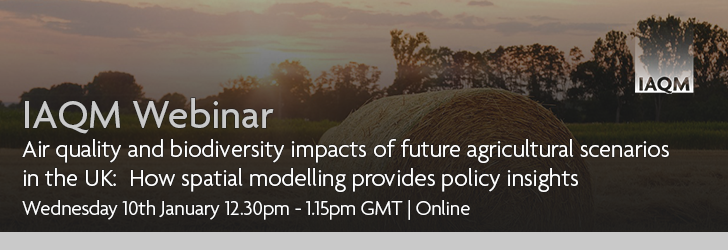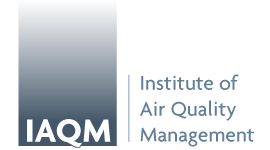Agriculture is the main source of ammonia emissions in the UK. These emissions result in both particulate air pollution and terrestrial eutrophication from the deposition of reactive nitrogen onto sensitive habitats. The Government has set targets and identified technical measures to tackle this directly, but even if these targets are met, ammonia emissions will continue to have widespread health and environmental impacts. Agriculture is also the main land use in the UK. This means changes to land use can alter the location and magnitude of ammonia emissions and its effects. Spatial modelling can be used to test the impact of future land use scenarios and help us to better understand where changes can have the biggest impact on health and the environment.
This webinar will explore the different land use changes being taken forward to meet Net Zero climate commitments in the UK, like afforestation and peatland restoration. How agriculture may change to meet future nutritional needs will also be discussed. A case study will be presented on how these changes can be spatially modelled to provide insights on what they could mean for air quality, biodiversity and reducing greenhouse gas emissions.
Our speakers
 Elizabeth Fonseca, PhD Student, Imperial College London
Elizabeth Fonseca, PhD Student, Imperial College London
Elizabeth is a PhD Student in the Centre for Environmental Policy’s Integrated Assessment Unit at Imperial College London, where she is conducting research into the air quality and biodiversity impacts of future UK Net Zero agricultural scenarios. This research spatially models how measures like afforestation, peatland restoration and livestock reduction result in changes to ammonia emissions and its resulting air quality and ecosystem impacts. Elizabeth is supervised by Prof Helen ApSimon and Dr Huw Woodward and her research is funded by Defra under the Support of National Air Pollution Control Strategies (SNAPCS) project.
Prior to this studentship, Elizabeth worked to advance environmental policy and address land, air and water pollution in the public and private sectors in the UK and the USA for over 25 years. This included 14 years at the London Borough of Hammersmith and Fulham, the latter 5 as part of a shared service at the Royal Borough of Kensington and Chelsea where she managed their Environmental Quality team, regulating and developing policy related to environmental pollution and health, climate change, biodiversity and fuel poverty. Immediately prior to beginning her postgraduate research, she worked for the Environmental Defense Fund where she led the collaborative Breathe London pilot project using state-of-the-art technology to map air pollution across the city.



